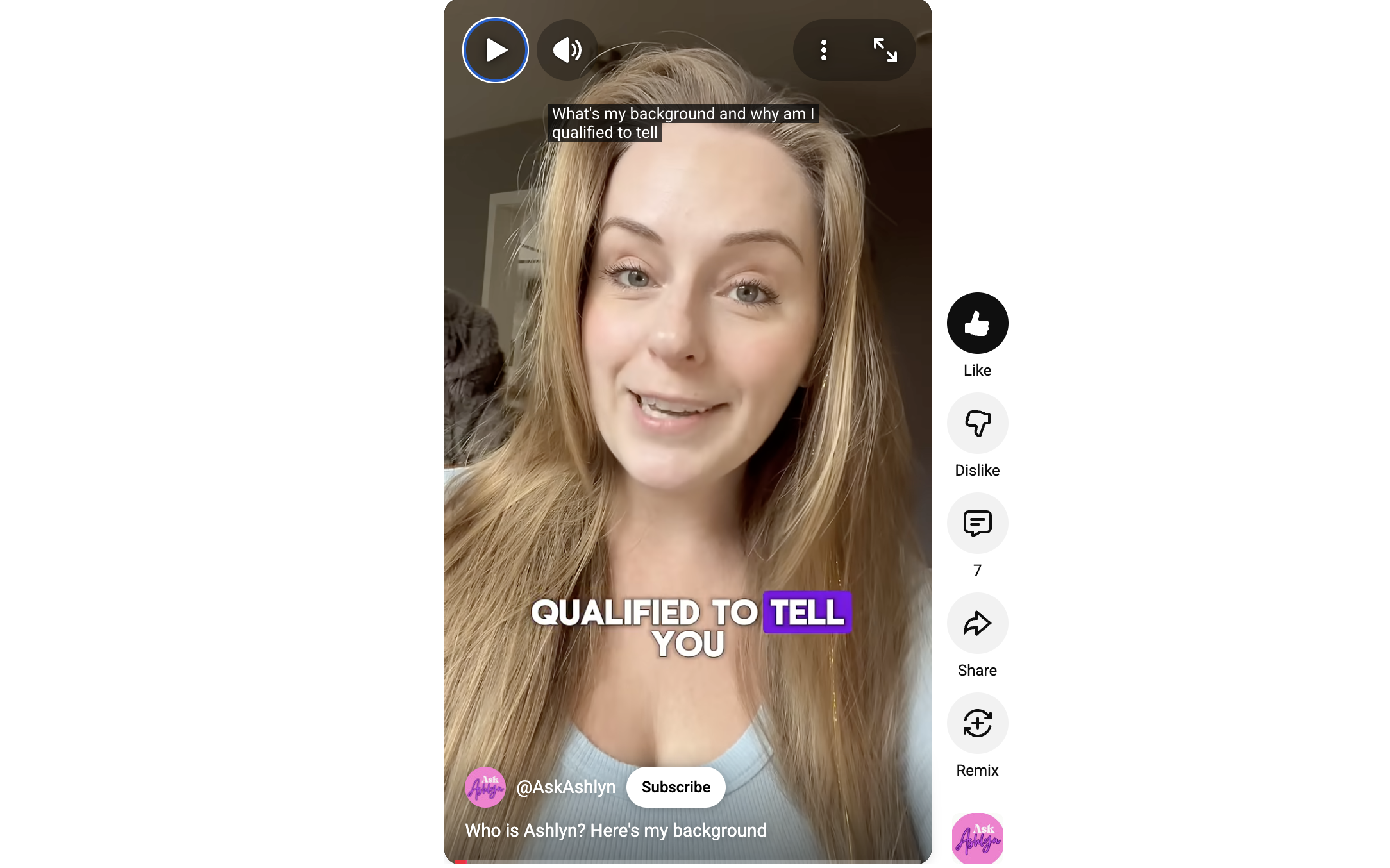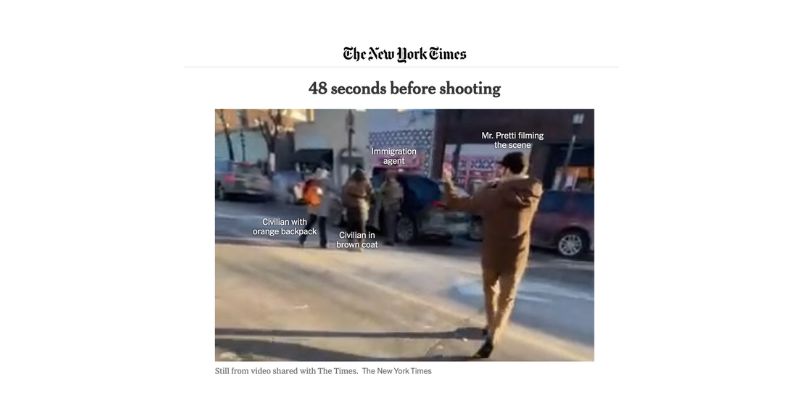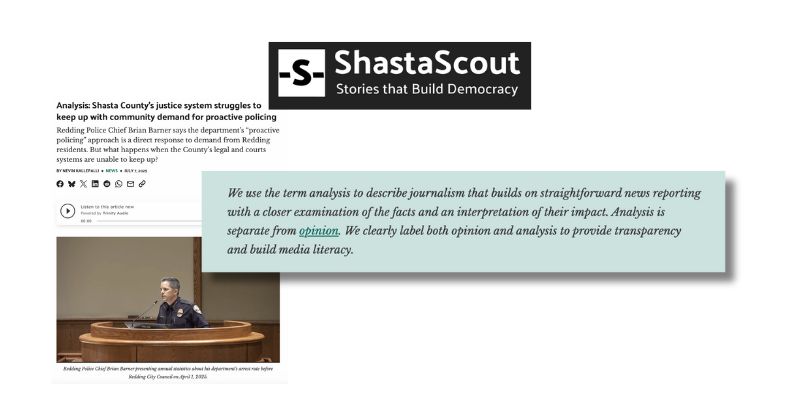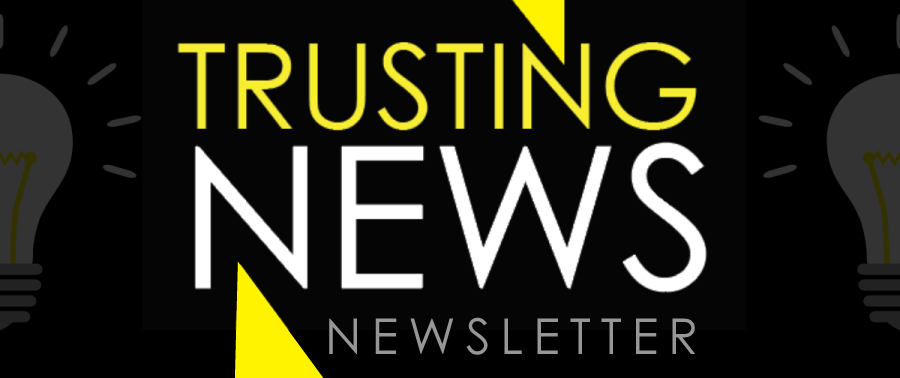
This weekly Trust Tips newsletter shares quick, actionable tips for how journalists can earn and sustain trust. Subscribe to get it in your inbox at trustingnews.org/newsletter.
Copy these ways to tell the story of your team
Your journalists can be your strongest trust-building asset, especially if your audience gets to know them. By pulling back the curtain on who’s behind the reporting, you can humanize your newsroom and show your community why they can rely on your work.
Whether it’s a “meet the team” page, a note in a story about why a reporter pursued a topic or a dedicated section explaining reporter expertise, these transparency elements give your audience reasons to trust in your work. They also reinforce that your journalism is done by real people — people who care about accuracy, fairness and serving the public.
Below are recent examples of newsrooms sharing information about who their journalists are in an attempt to better connect with audiences and demonstrate credibility.
Gannett’s “Meet our Team”
Through Gannett’s “Meet our Team” initiative, community members are getting a closer look at who journalists are. The initiative includes journalist profiles, behind-the-scenes articles and in-person events. Editor and Publisher recently highlighted this work.
Often, the initiative results in local papers publishing articles in which journalists are interviewed about themselves and their work. Some of the questions the journalists answer include:
- How did you get into journalism?
- How do you find stories?
- What’s something that would surprise readers about your work?
- What’s your favorite phone app?
- What’s your next goal you want to achieve?
- If you could interview anyone, who would that be and why?
The questions related to being a journalist help show credibility and experience while the personal questions show the community journalists are similar to them, real people with hobbies, families and a personal history. In the example below reporter Gene Myers is asked about his personal experience with disability and how that impacts his approach to covering his beat: writing about people with disabilities.
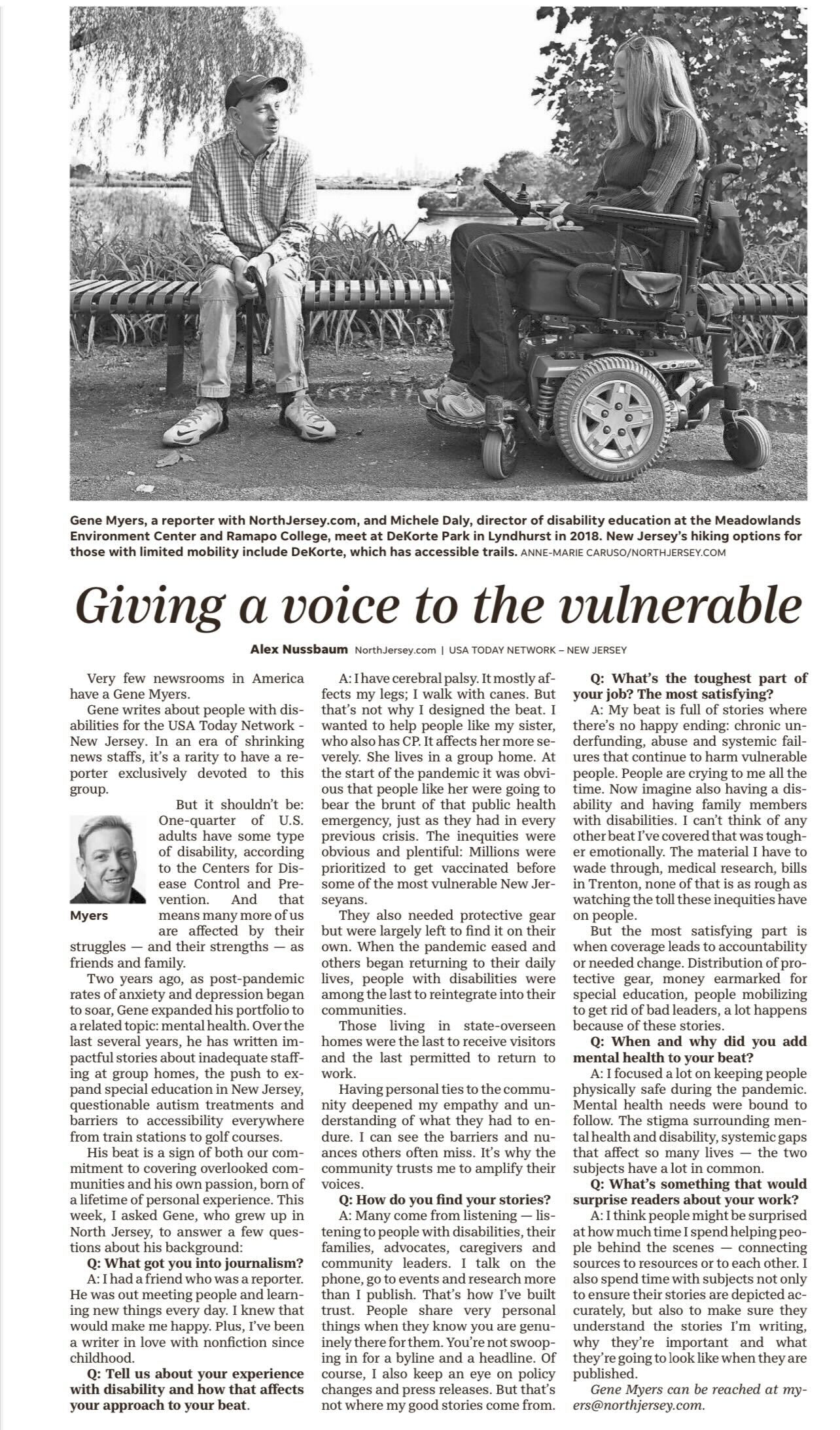
Wirecutter/New York Times “Why you should trust us”
Many readers are understandably skeptical of product reviews, especially when writers receive free products or discounts. This raises a common and valid question: Can you really trust them? Wirecutter addresses this concern head on by including a section in some of its product reviews titled “Why you should trust us.”
In this example reviewing mascara, we learn more from Meirav Devash about:
- The reporter’s experience. She has been a beauty journalist since 2004 and “can barely remember a time when I wasn’t testing a mascara.”
- The experts consulted. The review wasn’t just based on trying the mascaras. The reporter explains how she consulted other mascara experts including people who use the products often (makeup artists) and those who make the products.
- Their commitment to ethics. The reporter explains how the review is done independently without any interference from the business side of the news organization and links to the originations editorial standards so people can dive deeper into how they avoid conflicts of interest, fact-check, etc.
What makes this approach particularly effective is the tone. The section is written in clear, conversational language. It’s free of jargon and feels like a real person explaining their process and reasoning — building credibility by being transparent and relatable.
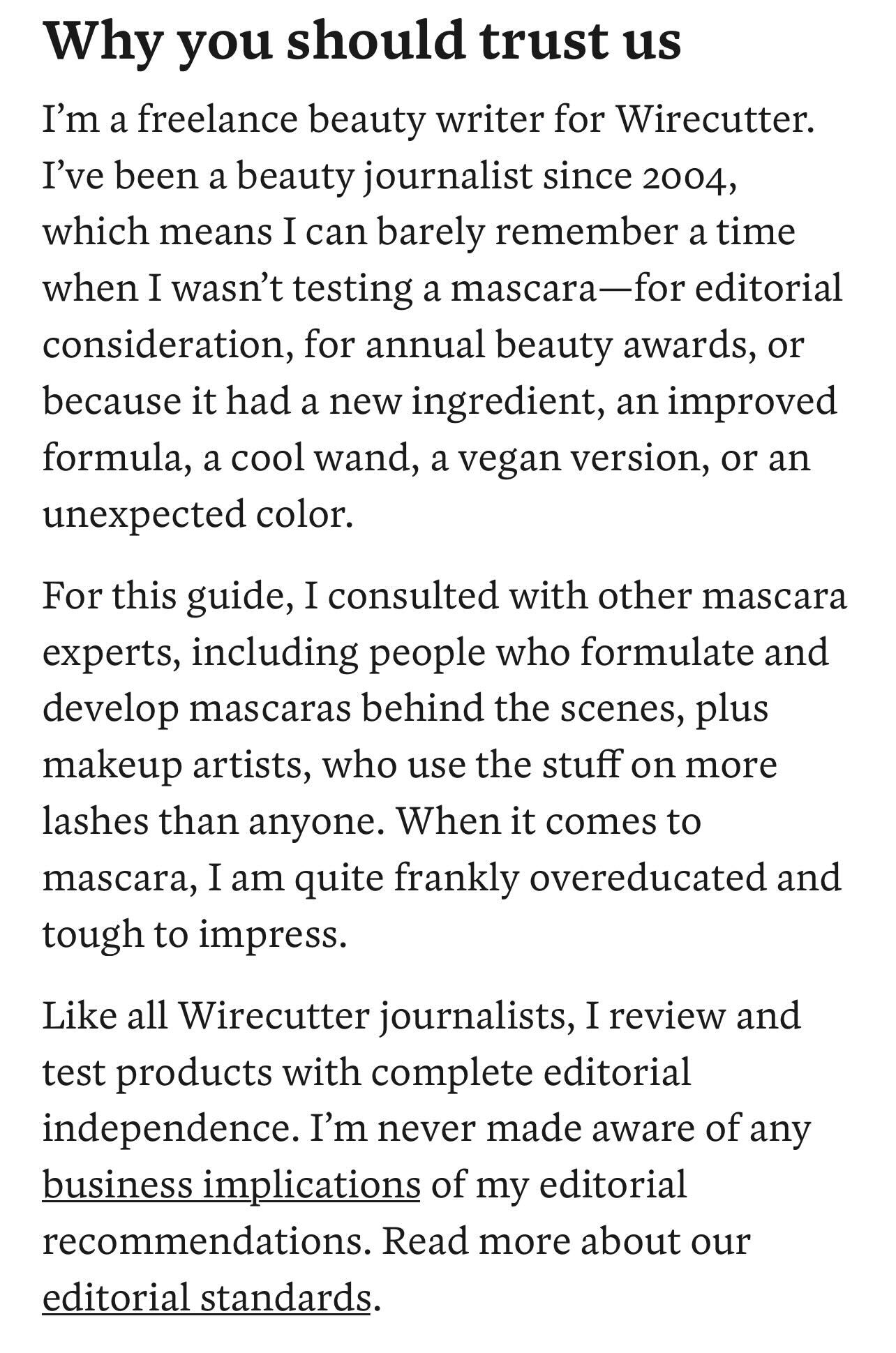
At Trusting News, we learn how people decide what news to trust and turn that knowledge into actionable strategies for journalists. We train and empower journalists to take responsibility for demonstrating credibility and actively earning trust through transparency and engagement. Learn more about our work, vision and team. Subscribe to our Trust Tips newsletter. Follow us on Twitter, BlueSky and LinkedIn.

Assistant director Lynn Walsh (she/her) is an Emmy award-winning journalist who has worked in investigative journalism at the national level and locally in California, Ohio, Texas and Florida. She is the former Ethics Chair for the Society of Professional Journalists and a past national president for the organization. Based in San Diego, Lynn is also an adjunct professor and freelance journalist. She can be reached at lynn@TrustingNews.org and on Twitter @lwalsh.
